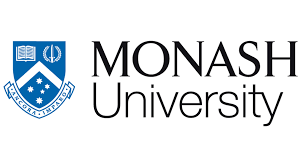Monash University: Monash students race to create cyborg heart in world-first competition
A team of Monash University biomedical engineering students has launched a global artificial heart competition to help combat one of the world’s biggest killers – heart failure.
The students are harnessing the greatest emerging minds in biotech innovation to design and commercialise a robotic heart that will help the 64 million people affected by heart failure worldwide.
Heart Hackathon is the world’s first student-led biomedical engineering competition and was developed by Monash Young MedTech Innovators. It is supported by leading international biotech sponsors, including Australian medical device company Hydrix and USA-based SynCardia, developers of the world’s only clinically available artificial heart.
Undergraduate teams in Australia, New Zealand, Europe, Africa, the UK and the USA have taken up the challenge. They are designing and building artificial heart prototypes, which will be judged by world industry experts at the annual conference of the International Society for Mechanical Circulatory Support (ISMCS).
Up for grabs are cash prizes, industry exposure and career-building opportunities, as well as the chance to help arrest the growing rate of heart failure deaths globally.
Heart failure affects about 300,000 Australians, with more than 30,000 new diagnoses made every year. One in 50 Australians dies from the condition.
Associate Professor Shaun Gregory, from Monash’s Department of Mechanical and Aerospace Engineering, said Heart Hackathon would help facilitate critical innovations for cardiovascular disease, the leading cause of death worldwide.
“This student competition will educate the next generation of biomedical engineers, and hopefully lead to new discoveries and new Total Artificial Heart (TAH) designs which can revolutionise the field,” Associate Professor Gregory said.
“We hope to see more durable devices that are small enough to fit into adults and children, while providing enough support to allow patients to return to their daily activities. For patients with heart failure, this will give years to their life and life to their years.”
The best treatment for advanced heart failure currently is a donor transplant. While transplants have an 80 per cent survival rate after five years, only about 100 are performed in Australia each year. Many would-be transplant recipients die while waiting for a donor heart.
For critically ill patients, mechanical heart pumps, like those implanted at The Alfred hospital, are a life-saving alternative. The Alfred implants more left- and right-ventricle pumps than any other hospital in the world. But there are almost no artificial heart implants currently performed in Australia.
Monash Biomedical Sciences (Cardiovascular Program) PhD candidate Julie Dao said while a TAH does exist, it is large, heavy, cumbersome and has many complications. “Building a TAH is a tremendously complex challenge. It requires developing a miniaturised pump that can pump enough blood to support both sides of the circulatory system – systemic and pulmonary – while fitting into a fairly small space.
“Furthermore, an artificial heart needs to automatically adjust its output when you transition from rest to exercise. It also needs to be fully biocompatible with surrounding tissue, have an external power source, be easy to implant, comfortable to wear and have minimal complications over a 10-plus year lifespan.”
Monash Mechanical Engineering and Biomedical Science student Georgia Brooks said she was incredibly proud to be one of Heart Hackathon’s first team leads, investing her skills and knowledge in an exciting hands-on project.
“As the first of its kind, this competition provides a unique opportunity for undergraduate students to grow their knowledge and passion for novel total artificial heart devices,” Georgia said.
“I want to be saving the lives of people across the world through the innovation of novel medical devices.”
SynCardia board member Daniel Teo welcomed the opportunity for further artificial heart innovation to improve patient quality of life.
“We believe that a fully implantable and permanent Total Artificial Heart is an achievable goal, but it will need some of the world’s best engineers and clinicians to bring their passion to the challenge,” Mr Teo said.
“This Hackathon is one way to inspire a new wave of innovators and generate fresh excitement around the world as we work with cardiologists, surgeons and other medical professionals to save more lives, one heart at a time.”
Hydrix Group Marketing Manager Alan Morris said Hydrix was proud to be a foundation sponsor of Heart Hackathon, as it seeks to nurture the next generation of cardiovascular technology innovators.
“As part of our commitment in supporting Heart Hackathon, the Hydrix team-members are providing technical guidance, participating in webinars, mentoring student groups, and working to ensure the inaugural competition is a success.”
Registrations for the inaugural Heart Hackathon are now open, with the grand final to be held at the ISMCS conference in Texas, in October 2023.
The competition will continue as an annual event and comes as the Victorian Heart Hospital – the first dedicated heart hospital in Australia – prepares to open at Monash’s Clayton campus in coming months.

